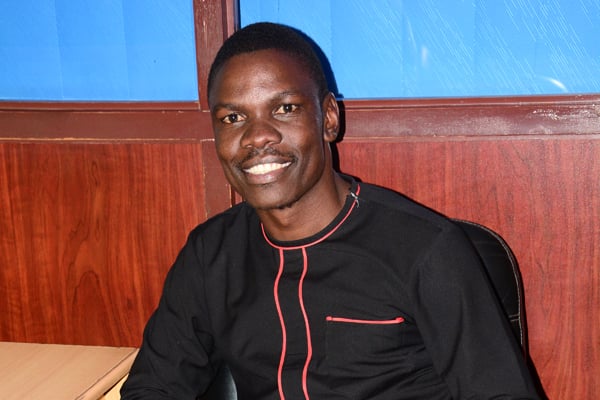Prime
Mixed success as NUP protest Museveni visit

Ugandans hold placards in Washington, US, in protest against President Museveni’s visit to the country early this week. PHOTO | COURTESY
What you need to know:
- The demonstrations in Washington DC commenced the day Mr Museveni set foot in the US ahead of the US-Africa Leaders Summit. The demonstrators held out pictures of some of the people believed to be missing for the last two years.
The National Unity Platform (NUP) diaspora team pitched camp on the streets of the American capital holding placards and agitating for President Biden of the US to call out his Ugandan counterpart Yoweri Museveni for alleged human rights violations in the country.
The demonstrations in Washington DC commenced the day Mr Museveni set foot in the US ahead of the US-Africa Leaders Summit. The demonstrators held out pictures of some of the people believed to be missing for the last two years.
But Mr Faruk Kirunda, the presidential Press Secretary, described the demonstrators’ actions as “fruitless.”
“After diaspora dissenters massively mobilising, tarnishing the name of Uganda and the personality of President Museveni, only to get a paltry number of mere walkers. What lessons can we learn from this flop? What name can we give this movie?” Mr Kirunda said in a tweet.
In their petition to both the White House and to US Secretary of State Anthony Blinken, NUP teams made it clear that Mr Museveni’s presence in Washington did not sit well with them. They cited among others “the abuse of human rights, torture and cruel treatment of civilians and Opposition members in Uganda.”
They also reiterated their “demand for free speech and press” in their native country, adding that “the illegal arrest and current imprisonment of Members of Parliament (MPs) Muhammad Ssegirinya ( Kawempe North) and Allan Ssewanyana (Makindye West) for the duration of more than one year without trial” was perplexing.
The other reasons for their protests included “the continued assault on democracy by denying Ugandans free and fair elections reflected by the life Presidency of Museveni who assumed power in 1986.”
They also spotlighted “the pillage of national resources and siphoning of taxpayer’s money.”
This appears to have had a feeble impact as the Museveni administration on Friday revealed that the Albertine Graben Refinery Consortium had offered assurances to commence construction of a 60,000-barrels-a-day refinery next year.
The protests in the US come nearly a month after the Opposition held a conference in the Kenyan capital, Nairobi. Participants at the conference demanded that the Museveni administration accounts for the alleged lives lost during a crackdown on the streets of Kampala last November. They also illuminated alleged arbitrary arrests.
On his first visit to the US since the November killings, President Museveni appears to have left the American capital with his reputation largely intact.
Dr Daniel Kawuma, the leader of the NUP US chapter, however, told Sunday Monitor on Saturday: “We have achieved their intentions and we have been promised by the authorities here to have the matter reviewed. We have since seen sanctions and I know more are to come.”
As participating in the US-Africa Leaders Summit, President Museveni had a stopover in Chicago on Friday where he officiated at the opening of the Uganda International Trade Summit.
Mr Museveni also attended an exhibition organised by Africa Global Chamber of Commerce and the Presidential Advisory Committee on Exports and Industrial Development (PACEID), which is coordinated by his office. The President invited the diaspora and US investors to invest in Uganda.
Ms Hellen Nandaula, a member of the Chicago Ugandan Community, who says she had registered to be part of the engagement in the same city, was blocked from accessing the venue. She was also reportedly thrown out of a hotel she had lodged in.
Mr Joel Ssemakula, one of the NUP leaders in the diaspora, said: “The US government has not walked the talk. They dine and wine with the dictator and at the same time tell us they believe in democracy and human rights. We believe they are being hypocritical and they don’t mean what they say. Nevertheless, we have made tremendous efforts in highlighting the many atrocities which are being committed by the regime in Uganda towards political opponents to mention but a few.”





